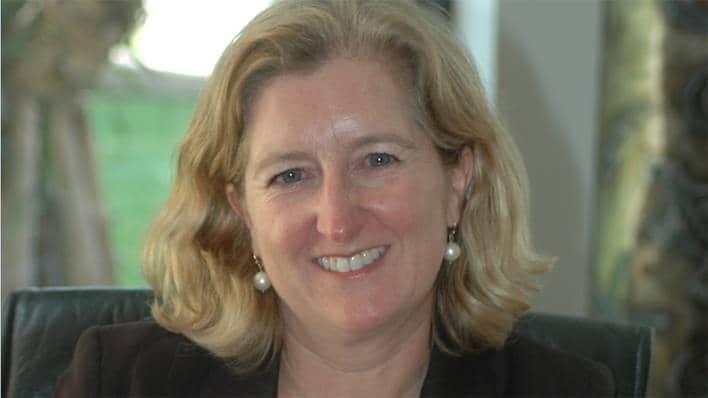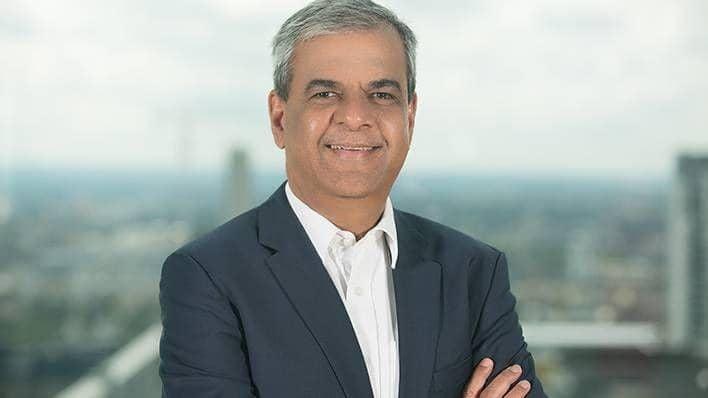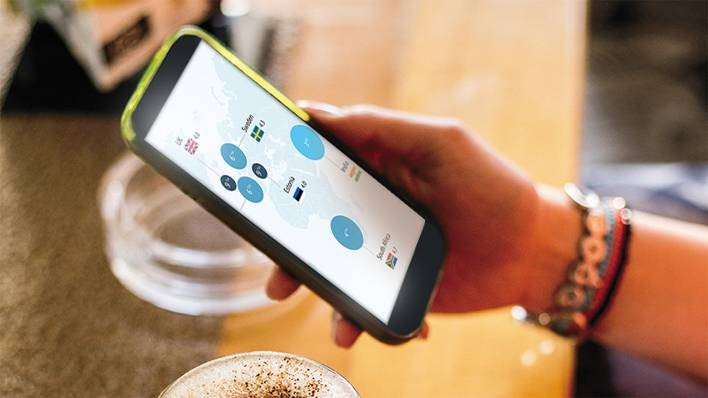
Improving lives in Africa
Susan Payne is leading a unique collaboration between Barclays and healthcare company GSK to transform lives in Africa

Growing up, if I wanted to speak to someone I would meet them face to face; if I needed to learn something, I would ask someone or look it up in a book; and when I needed to get somewhere new, I would use a map to navigate myself.
Back then, I never would have guessed that one day, all this and more could be done by simply using a mobile phone. Now, in the press of a button I can speak to, and see my family half way across the globe; I can find the answer to any question on the go or even find out where to stand on the tube platform to make my journey as fast as possible. Just in my lifetime so much has changed!
As the digital era strides forward, there’s no denying it is transforming the way we live and work. But I find myself asking whether we can confidently say as individuals and as a society that everyone is making the most of these opportunities.
Our new study, The Barclays Digital Development Index, takes the debate from one of ‘digital inclusion’ to an entirely new and very important territory of ‘digital empowerment’; asking whether we have the digital skills to work productively and creatively, as well as the opportunity to continually refresh them to keep pace with changing technology. It’s not just about whether we can, for example, download an app, it’s about whether we can take it a step further and, as I have been doing on my own journey, create and build an app from scratch.
Our index also looks at the important question of how the UK compares to our global peers by measuring and comparing the digital skills and confidence of 1,000 workers in 10 countries, along with the policies and support in place to improve them.
Back then, I never would have guessed that one day, all this and more could be done by simply using a mobile phone. Now, in the press of a button I can speak to, and see my family half way across the globe; I can find the answer to any question on the go or even find out where to stand on the tube platform to make my journey as fast as possible. Just in my lifetime so much has changed!
As the digital era strides forward, there’s no denying it is transforming the way we live and work. But I find myself asking whether we can confidently say as individuals and as a society that everyone is making the most of these opportunities.
Our new study, The Barclays Digital Development Index, takes the debate from one of ‘digital inclusion’ to an entirely new and very important territory of ‘digital empowerment’; asking whether we have the digital skills to work productively and creatively, as well as the opportunity to continually refresh them to keep pace with changing technology. It’s not just about whether we can, for example, download an app, it’s about whether we can take it a step further and, as I have been doing on my own journey, create and build an app from scratch.
Our index also looks at the important question of how the UK compares to our global peers by measuring and comparing the digital skills and confidence of 1,000 workers in 10 countries, along with the policies and support in place to improve them.
Having grown up in India and having lived in countries across the world, I find it fascinating to learn that while developed countries have more sophisticated digital policies in place to promote digital skills, it is employees in developing countries that are most confident about their digital capabilities.
For example, in South Korea, despite leading the charge on digital policy implementation, only 11% of people would feel comfortable building a website compared to 39% in Brazil and 37% in India. Similarly, the UK is more a nation of ‘digital consumers’ rather than ‘digital creators’, falling behind India, Brazil, China, the US, South Africa and Germany when it comes to content-creation and coding skills. Equally concerning are the distinct socio-demographic divides that are emerging; Estonia, Sweden and South Korea are home to the world’s least digitally confident women.
These findings show it is not only individuals that are missing out; there are missed opportunities to add to the digital economy which could generate $1.36trn in global economic output by 2020. Failing to invest in our nations’ digital capabilities could have concerning effects and no single individual, business or nation is immune from digital disruption. It’s no longer just about leaving no one behind, we want to take everyone forward in this digital age.
As a transatlantic bank we care deeply about securing a strong future for the global economy and about making decisions and doing business that provides our stakeholders and the communities we serve with access to a prosperous future. We are grateful to the many contributors from the business, scale-up and charity sectors who have offered their insights and expertise to the debate and who have enriched the report’s exploration of what is needed to foster the continued development of digital skills and confidence.
With the launch of this index, we hope to inspire conversations and action that will help promote digital literacy and life-long skills development – both recognised as drivers of economic growth. Barclays is committed to supporting individuals and businesses alike to build the digital skills and confidence required to progress on their own digital journey.

Susan Payne is leading a unique collaboration between Barclays and healthcare company GSK to transform lives in Africa

'The sharing economy' is one of the hottest topics in the business world, but do we really understand what the term means?

James Allan has worked for Barclays for more than 15 years in a variety of roles, recently heading up UK Cash Management for the Corporate Bank

Wendy Papworth is Director for Diversity & Inclusion (D&I) and also leads Barclays’ group-wide focus on the gender agenda

